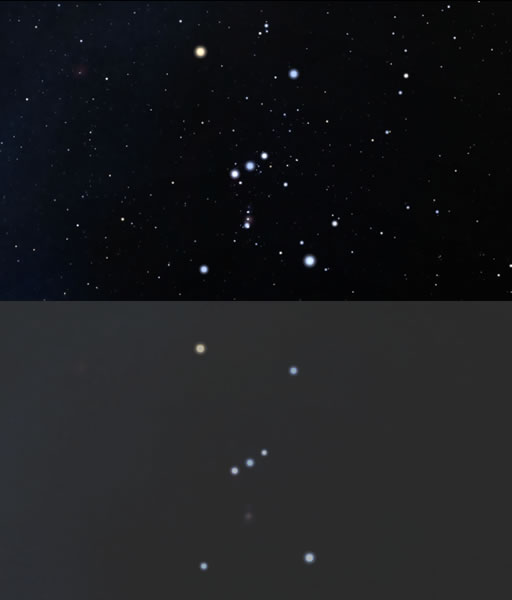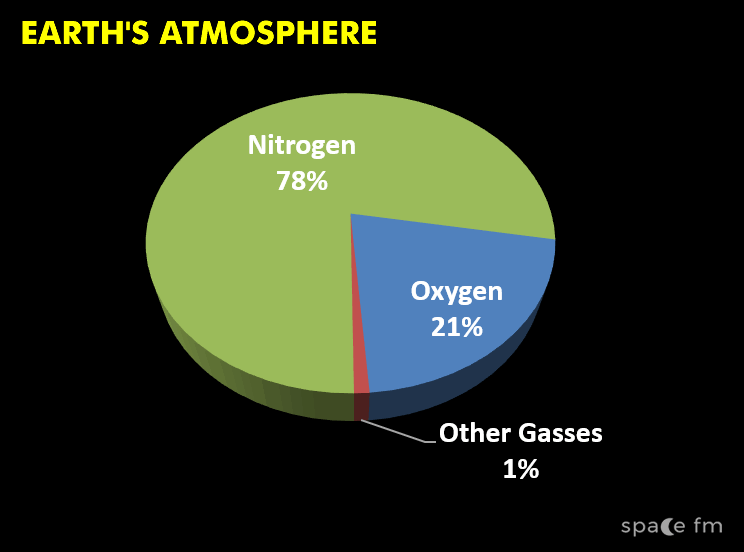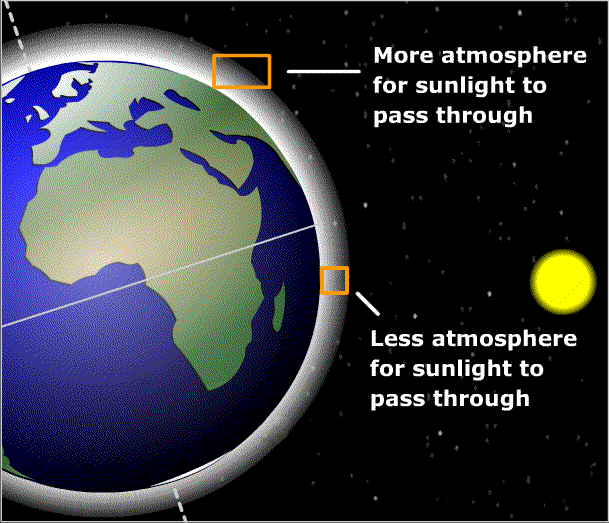Atmospheric Effects
1.6 - Understand the effects of the Earth’s atmosphere on astronomical observations, including sky colour, skyglow (light pollution) and ‘twinkling’ (seeing)Earth's atmosphere has an effect on astronomical observations. While the atmosphere shields us from harmful radiation from the sun, it also reflects most radiation. This makes observations at some wavelengths weaker.
Sky Colour
The atmosphere is in constant movement from Earth's weather. While the weather causes clouds which obscure viewing it also affects the atmosphere's ability to scatters light from the Sun. Sunlight causes nitrogen in our atmosphere to scatter and produce our blue sky. At sunrise and sunset the light has further to travel through our atmosphere and causes red skies.
Twinkling (Seeing)
The atmosphere refracts light which means the position and clarity of star viewing is less accurate. Movements in the atmosphere can cause subtle variations in how a star appears and can cause them to appear to ‘twinkle’. When you look at stars nearer the horizon they can sometimes appear to twinkle more as you are viewing them though more atmosphere.
Light Pollution
Optical pollution is light from human sources. If you go to the countryside or area outside a town on a clear night you will see many more stars than you would do in the city. The reason why you cannot see so many stars in a city is light pollution. This is the result of so many lights in a built-up area shining upwards and obscuring the night sky.
Chemical pollution comes from man-made and natural chemicals in the atmosphere obscuring the sky or affecting observations.
Human pollution comes from many sources such as manufacturing and production industries. Natural pollution comes from volcanoes and gases from the mantle passing through the crust into the atmosphere. Volcanic ash not only covers the sky and travels around the globe but refracts light substantially.
Did you know?
- The atmosphere is made up of nitrogen, oxygen and other gases such as argon and carbon dioxide.
- There is more atmosphere on the surface near the sea than on top of a very tall mountain. Gravity is stronger the nearer it is to the Earth's centre.
- Atmosphere thins out the further it is from Earth to the point where it merges with space.
Questions
- What are the problems of light pollution for astronomers?
- What does the daytime sky look like on the Moon and why?
Links
- Enchanted Learning The Earth's Atmosphere
- Info Please Role of the Earth's Atmosphere
- Ask an astronomer What are the advantages and disadvantages of using a telescope in space?
- Light Pollution Maps for England CPRE
- Campaign for Dark Skies Information from the British Astronomical Association





 | © All Rights Reserved |
| © All Rights Reserved |